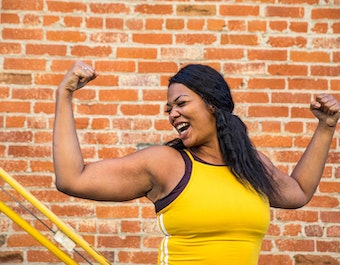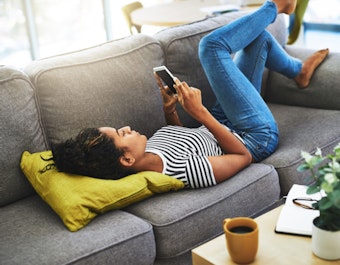When was the last time you hugged your best friend? Or gave your nephew a high-five? With COVID-19, we’ve all had to cut back on our in-person social interactions. And while technology like video calls has helped keep us connected, feelings of loneliness and isolation are normal. What you might not realize is that loneliness can have big mental and physical effects on your health.
Studies around loneliness have centered mainly on seniors who often live alone and/or have lost friends and family members close to them as they’ve aged. To wit, a major 2020 report found that more than one-third of adults 45 years and older feel lonely, while nearly one-fourth of adults 65 years and older are considered “socially isolated.”
But the pandemic has been something of an equalizer, affecting people of all ages. An October 2020 survey of more than 1,000 people between the ages of 18 and 35 reported, for instance, that more than 80% of respondents were suffering from significant depressive symptoms, and 61% reported moderate to severe anxiety.
“We are social animals, and in order to thrive and survive we need contact with others,” says primary care physician and internist Matthew Mintz, MD. When we lack human contact, that can lead to negative mental effects like anxiety or depression, which can in turn cause physical symptoms like weight loss or gain, increased blood pressure, sleep disorders, headaches, and digestive issues, Mintz says.
The good news is, that while face-to-face interactions aren’t always possible right now, there are plenty of ways to nurture connections and combat loneliness. Since the early days of the COVID-19 lockdowns, many people have turned to virtual hangouts like FaceTime or Zoom, for everything from birthday parties to bridal showers — and for good reason, Mintz says.
“While in-person and even physical contact is best, Internet/video contact can be a decent substitute,” he says. “One review of use of such technologies in the elderly concluded there was benefit in reducing social isolation."
Another way to boost your mood and feel more connected is to give your time and charity to someone else, says Christina Aegerter, PsyD, a licensed clinical psychologist.
“Doing kind things for other people helps us feel better,” she says. This could mean leaving a warm batch of cookies at your neighbor’s front door or joining an official volunteer group. Aegerter has at least one client who’s helping to catalog items online for the Smithsonian Museum.
Of course, people aren’t the only ones who can help to reduce our loneliness — furry friends can also make a big difference, Aegerter says, by reducing loneliness and even lowering your blood pressure.
“There are actually studies that show that spending time with animals, petting animals, looking into an animal’s eyes can release the same hormone, oxytocin, that's released when we hug or touch another person,” she says. And you don’t necessarily have to adopt a Fido or Fluffy to get this feeling — spending time at an animal shelter or walking your neighbor’s dog could also reap benefits.
This goes hand in hand with another of Aegerter’s loneliness busters: taking care of something. Whether it is a new pooch or even a leafy houseplant you’ve added to your windowsill, Aegerter says that having something to take care of increases feelings of control when you feel out of control.
Another tip Aegerter gives her patients: Seek out a new hobby or interest.
“Social interaction and meeting new people are often novel things, so try to engage that part of the brain by doing something new,” she says. “Spend time doing the things you always wish you had time for, getting comfortable being in your own company.”
This could be anything from reading a new book to learning a second language to signing up for your first yoga class. Get creative! You may stumble upon a new passion in the process.
If after trying a number of different tactics, you’re still experiencing deep feelings of loneliness and isolation, there is no shame in getting a little professional help. And keep in mind that even if you don’t live alone, you might still feel lonely, especially if you’re not as connected to friends, family, or co-workers, she says.
“Individual therapy is great,” says Aegerter. “There are also a lot of places offering COVID support groups.” If you live by yourself and you’re feeling lonely, you can “hang out on Zoom with other people in your situation and a therapist.”
Loneliness doesn’t have to take a toll on your health — by finding a social support network, and some purpose, you can ease at least some of the strain and stress brought on by COVID.
AMY WILKINSON
Rally Health






